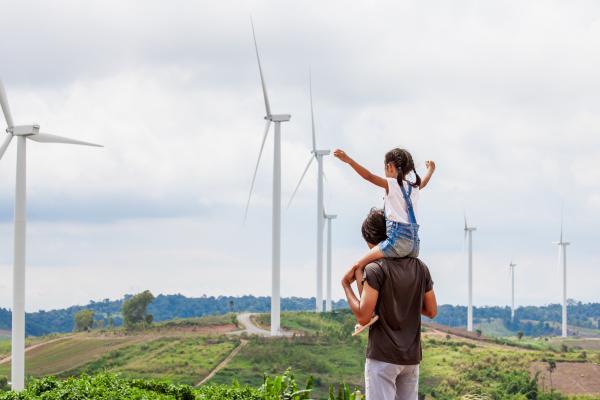
- 60% think climate policies will improve their quality of life
- 54% say that the green transition will be a source of economic growth
- 51% believe policies to tackle climate change will remove more jobs than they create
- 19% expect to have to move to another region or country in the future because of climate change — this figure increases to 46% among people aged 20-29
- 16% fear they could lose their job because it will become incompatible with the need to mitigate climate change — this figure is 29% among 20-29 year-olds
These are some of the results from the latest release of the 2021-2022 Climate Survey conducted in September 2021 and published today by the European Investment Bank (EIB). The EIB is the lending arm of the European Union and the world’s largest multilateral lender for climate action projects.
Better quality of life despite less purchasing power
Are policies to tackle climate change good news for the economy? The majority of Croats would agree: 54% say the green transition will be a source of economic growth (in line with the EU average of 56%).
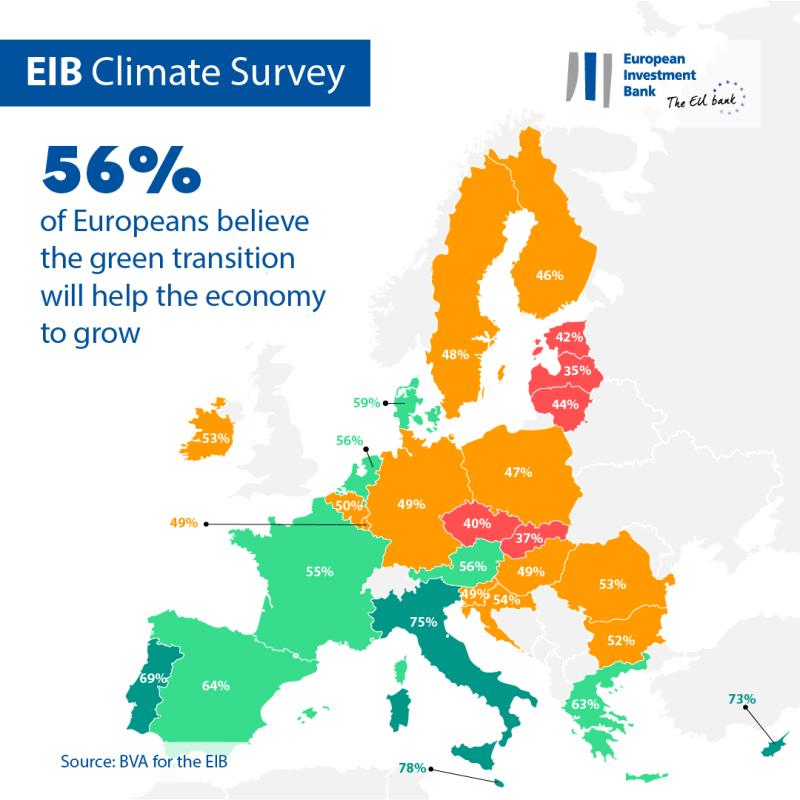
60% of Croatian respondents also believe that their quality of life will improve, with greater convenience in their everyday lives and a positive impact on the quality of their food and their health. However, Croatians are split when asked about the impact of policies that address the climate emergency on the job market: 49% believe these will have a net positive impact on employment levels within the country, creating more jobs than they eliminate, while 51% think the opposite.
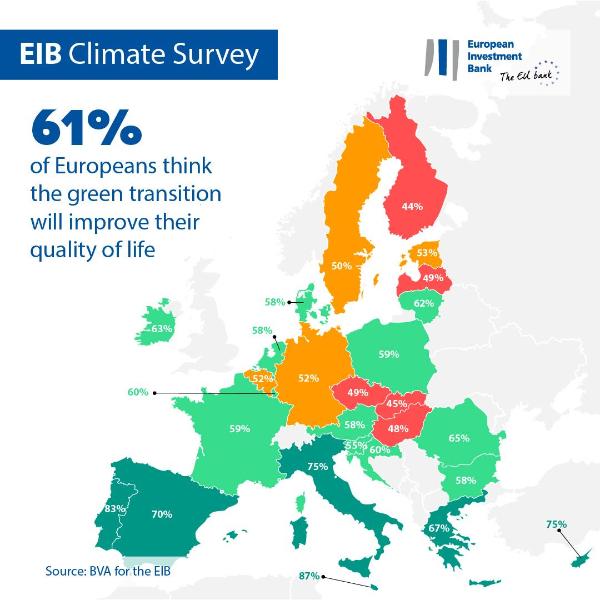
Meanwhile, two-thirds (66%) anticipate that their purchasing power will decrease with the green transition.
Migration to other regions and changing jobs
According to Croatian respondents, the challenges related to climate change are here to stay. While one-quarter (28%) of them believe that the climate emergency will be under control by 2050, 69% feel that it will still be a serious issue by mid-century.
People also see climate change threatening their place of residence. When asked about the longer-term impact of the climate crisis, one-fifth of Croatians (19%) expect to have to move to another region or country because of climate change. This concern is much stronger among people in their twenties, with 46% of them saying they are worried about the possibility of needing to move due to climate issues. Finally, many young Croatians are also concerned about the sustainability of their jobs: nearly one-third of respondents aged 20-29 (29%) fear they could lose their job because it will become incompatible with the fight against climate change (13 points above the national average of 16%).
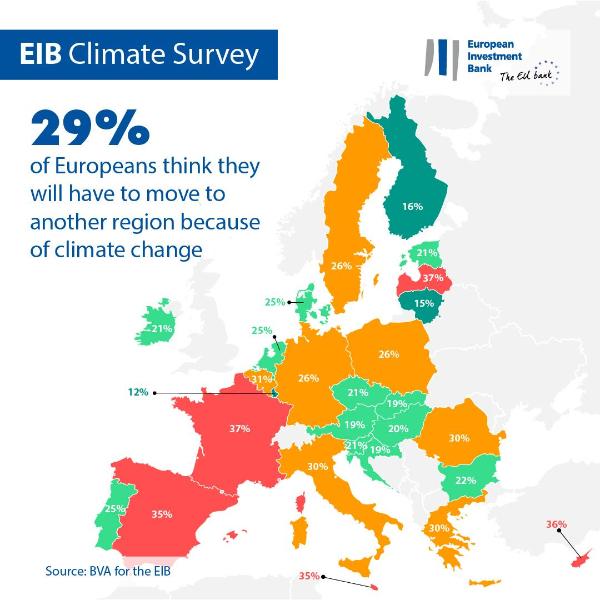
Long-term lifestyle changes
Croatians are conscious of the behavioural shifts that are needed to tackle climate change. According to them, individual lifestyle changes that reduce carbon emissions will gain significant traction in the next 20 years. Almost one-third of respondents (29%) believe that most people will no longer own a car in 20 years and 71% believe that most people will be working from home to contribute to the fight against climate change. Lastly, 56% of them think most people will have adopted a plant-based diet and 51% predict that an energy quota will be allocated to each individual.
A global comparison: Differences between EU, British, American and Chinese respondents
Overall, Europeans are divided on whether the green transition will be a source of economic growth. More than half of respondents (56%) believe it will be the case, in line with the perception of Americans and British people (57%), while Chinese people are more optimistic (67%). However, the majority of Europeans (61%) are confident that their quality of life will improve, with a positive impact on the quality of their food and their health. Europeans are more pessimistic compared to Chinese people (77%), Americans (65%) and British people (63%).
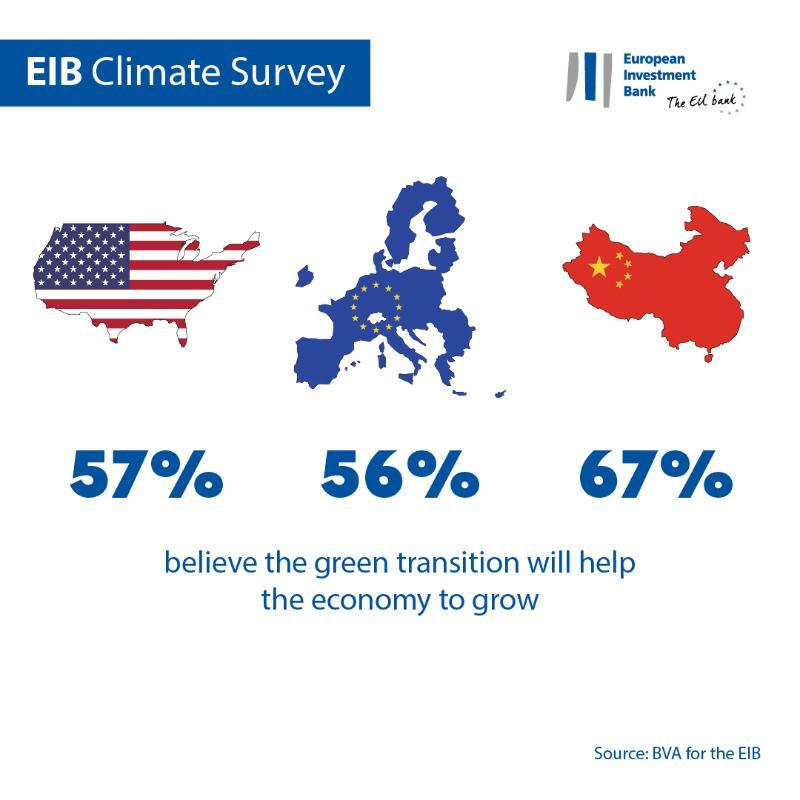
EIB Vice-President Teresa Czerwińska said: “Croatians see clear opportunities in the green transition for their quality of life and economic growth. But they are also concerned about the potential negative impact on the job market, and anticipate significant lifestyle changes in the years to come. As the EU climate bank, it is our responsibility to listen to these concerns and work with policymakers and industry partners to address them. In doing so, we can help power the transition to a greener and prosperous future that leaves no one behind.”
Download the Excel spreadsheet with the raw data for all 30 countries surveyed here. Please click here to access an EIB webpage presenting key findings of the EIB Climate Survey IV.
About the EIB Climate Survey
The European Investment Bank has launched the fourth edition of the EIB Climate Survey, a thorough assessment of how people feel about climate change. Conducted in partnership with market research firm BVA, the fourth edition of the EIB Climate Survey aims to inform the broader debate on attitudes and expectations in terms of climate action. More than 30 000 respondents participated in the survey between 26 August and 22 September 2021, with a representative panel for each of the 30 countries polled.
About the European Investment Bank
The EIB Group has recently adopted its Climate Bank Roadmap to deliver on its ambitious agenda to support €1 trillion of climate action and environmental sustainability investments in the decade to 2030 and to deliver more than 50% of EIB finance for climate action and environmental sustainability by 2025. As part of the roadmap, all new EIB Group operations have been aligned with the goals and principles of the Paris Agreement since the start of 2021.
About BVA
BVA is an opinion research and consulting firm recognised as one of the most innovative market research firms in its sector. Specialised in behavioural marketing, BVA combines data science and social science to make data inspiring and bring it to life. BVA is also a member of the Worldwide Independent Network of Market Research (WIN), a global network of some of the world’s leading market research and survey players, with over 40 members.